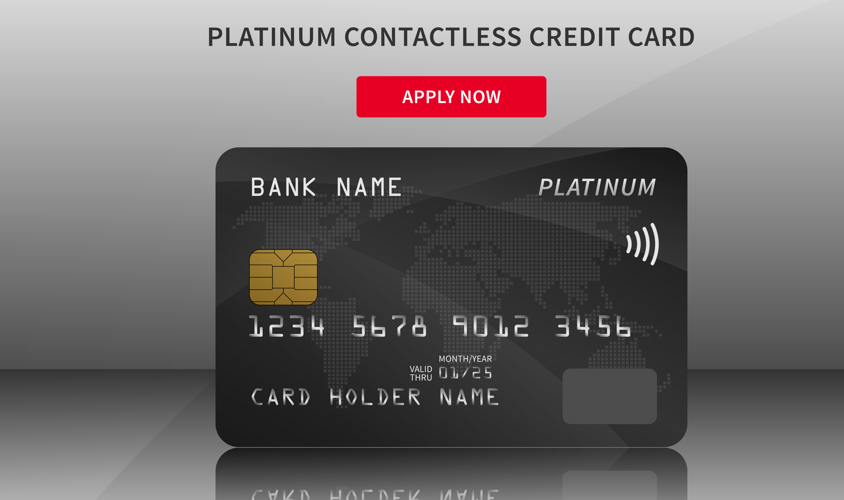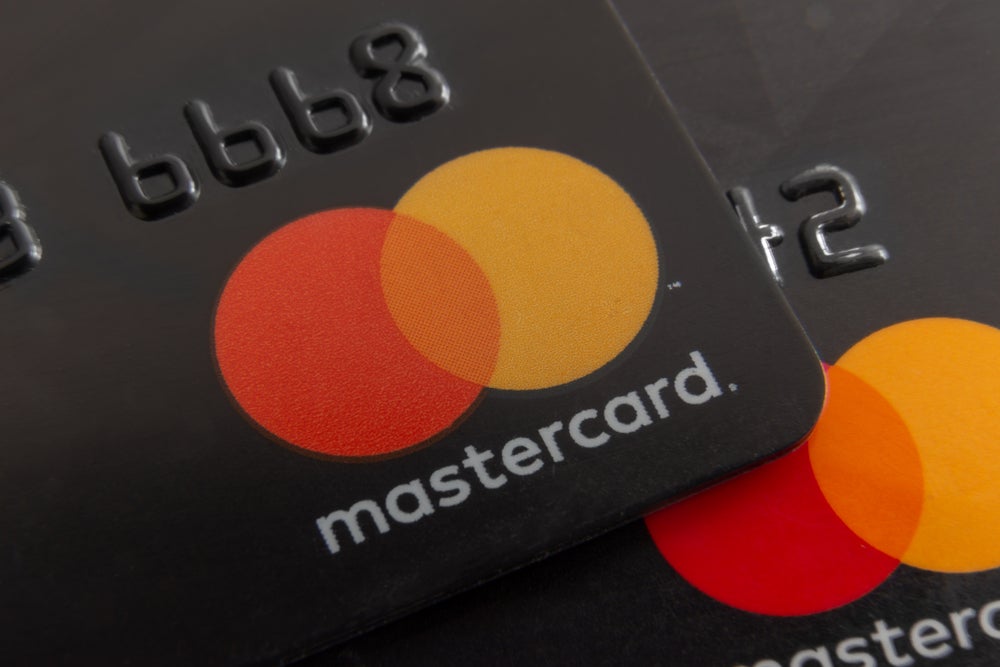Scotiabank has brought the expertise
it developed in its Canadian cards operation to its Caribbean
subsidiaries. Robin Arnfield reports
Scotiabank has been in the Caribbean for 120
years, and has retail banking operations in 23 countries, including
Haiti, Puerto Rico and the Dominican Republic. It also has
operations in Belize and Guyana.
The largest bank in the Caribbean, Scotiabank
competes regionally with two other Canadian banks, Royal Bank of
Canada and CIBC. CIBC owns First Caribbean International Bank,
while RBC expanded its Caribbean presence with the 2007 purchase of
RBTT Financial Group. In 2010, Scotiabank bought Puerto Rico’s R-G
Premier Bank, which substantially increased Scotiabank’s Puerto
Rican merchant acquiring business.
“In the Caribbean, Scotiabank’s credit
cards operation caters to all segments, from entry-level
cardholders who recently acquired bank accounts, to mid-market
consumers, international travellers, the affluent and small
businesses,” says Luce Veilleux, Scotiabank’s senior vice president
of retail products.
Scotiabank issues both Visa- and
MasterCard-branded credit cards in the Caribbean, although in
Canada it only issues Visa-branded credit cards.
How well do you really know your competitors?
Access the most comprehensive Company Profiles on the market, powered by GlobalData. Save hours of research. Gain competitive edge.

Thank you!
Your download email will arrive shortly
Not ready to buy yet? Download a free sample
We are confident about the unique quality of our Company Profiles. However, we want you to make the most beneficial decision for your business, so we offer a free sample that you can download by submitting the below form
By GlobalDataIn 2011, Scotiabank’s Caribbean credit and
debit cardholders carried out 40m purchase transactions, worth
around C$3bn ($3bn).
Veilleux says that Scotiabank has a balanced
approach to risk for its Caribbean credit card portfolios. “In 2009
and 2010, we saw deterioration in our Caribbean credit card
portfolios in line with the overall industry, but our portfolio is
now in very good shape,” she says.
Economic conditions remained weak in the
Caribbean in the year to 31 October 2011, according to Scotiabank’s
2011 financial report. This resulted in Scotiabank’s Caribbean and
Central American gross impaired loans – across all loan categories
– rising from C$931m in 2009 to C$1.7bn in 2010; and C$1.6bn in
2011.
“The Caribbean cards market is
fragmented,” says Andreas Suma, card analytics firm FICO’s senior
director for Latin America. “From a regional perspective, the
Caribbean is maturing, but it’s behind the curve compared to other
cards markets.”
Suma says the Dominican Republic and Puerto
Rico are the most developed Caribbean countries in terms of credit
and debit card penetration. “The other major cards countries in the
Caribbean are Jamaica, Barbados, and the Bahamas,” says John Carlos
Muñoz, VeriFone’s general manager, Caribbean, Central America and
Andes.
Product families
Veilleux says Scotiabank’s Caribbean credit
card portfolio is grouped in four product families: low fee/rate,
merchant rewards points, cashback, and travel. “We bring to the
market our expertise in proprietary and co-brand rewards
programmes,” she says.
To encourage card usage, Scotiabank offers the
More for You programmes, which provides discounts for Scotiabank
credit cardholders at selected retailers on the islands.
“We have a very strong relationship with the
Magna rewards scheme, which is the Caribbean equivalent of Air
Miles, and offer MasterCard-branded Magna rewards credit cards on
eight islands,” says Veilleux. “We also have a co-branding
relationship with PriceSmart, the Caribbean’s largest warehouse
membership club. We launched the Scotiabank PriceSmart Diamond
MasterCard credit card in five countries in 2008.”
“For frequent flyers, we offer an American
Airlines co-branded credit card, the Scotiabank / AAdvantage card,
in eight islands,” says Veilleux. “In addition, we have co-branded
credit cards with local telcos.”
Scotiabank’s most significant recent credit
card launch is Aero, a frequent-flyer card offering ScotiaPoints
which cardholders use to buy flights, book hotels, rent cars and
purchase travel packages.
“We launched Aero in Trinidad and Tobago in
2010, and rolled it out to a further five Caribbean countries
including Barbados and Jamaica at the end of 2011,” says Veilleux.
“Aero has no blackouts, and offers flexible redemption of
points.”
Aero is similar to the RBC Avion travel
rewards card which RBC launched in Canada in 2002.
“In terms of segments, the Aero and PriceSmart
cards are for A and B consumers, while the Magna card is for
mid-market cardholders,” says Veilleux. “In the upscale segment, we
offer both MasterCard Black cards and Visa Infinite cards.”
“Scotiabank has a very strong presence in the
Caribbean cards market, and it has also targeted Latin America for
growth in cards,” says Cheryl Brown Woodburn, a senior client
partner at FICO. “An advantage that Scotiabank has over local banks
is that it has expertise in Canada that it can bring to bear in its
Caribbean cards operations. Also, Scotiabank has partnerships with
airlines, retailers and merchants which it can leverage, and that
local banks don’t necessarily have.”
Open-loop debit cards
Scotiabank launched its first Visa Debit card
in the Caribbean in 2007 to meet a consumer need for open-loop
ATM/debit cards that could be used for point-of-sale and online
purchases and for foreign ATM withdrawals. The bank also offers
MasterCard-branded debit cards in the Caribbean.
“In many of our markets such as St Lucia and
St Kitts and Nevis, for example, local banks were issuing ATM cards
that could not be used at ATMs on other islands, for online
shopping, or at the point of sale,” says Veilleux. “Scotiabank’s
Visa Debit launch received a lot of publicity, with customers
lining up outside their branch to get a card.”
“We’ve been rolling out Visa Debit and
MasterCard-branded debit cards to all the islands, with the
decision as to whether to issue Visa or MasterCard debit depending
on individual islands,” Veilleux adds.
Skybox
Since November 2011, Scotiabank has offered
the Skybox e-commerce service to its Caribbean and Central American
Visa cardholders.
Provided by logistics firm Skybox Concierge
Services, the service enables Visa Latin America and Caribbean
cardholders to shop from US websites and have their purchases
delivered to US mailing addresses. Skybox ships the goods to the
purchaser’s home in their country of residence.
“People in the islands have limited access to
retailers, so online shopping is important to them,” says Veilleux.
“But many US merchants won’t accept foreign credit cards if the
cardholders don’t have US mailing addresses. Skybox offers video
tracking, which means customers can see a video of the item they’ve
ordered and check it is the correct purchase.”
Collections management
In 2011, Scotiabank rolled out FICO’s TRIAD
platform and its Debt Manager collections management system in
Chile and the Caribbean, having previously deployed the
technologies in Mexico and Peru. According to FICO’s Suma, “issuers
use TRIAD to handle account creation, card management, pricing, and
optimisation of marketing strategies.”
“Scotiabank uses our technology across the
cardholder lifecycle, from origination, customer management and
fraud control to collections,” says FICO’s Brown Woodburn. “It also
uses our analytic models and scoring systems to segment its
customer base and to decide what card products to offer to specific
segments.”
Scotiabank has standardised its technology
platforms and this means that when Scotiabank acquires other banks,
“it is easy to integrate the acquired bank’s cards operations with
the Scotiabank card platform, and issue Scotiabank cards to the
newly-acquired customer base,” she says.
Merchant acquiring
“Scotiabank uses First Data Merchant Services
(FDMS) for direct merchant acquiring in 18 countries across the
Caribbean,” says Veilleux. In Puerto Rico, Scotiabank currently has
the Scotia CardPoint acquiring joint venture with FDMS.
“First Data is the largest processor in the
Caribbean,” says VeriFone’s Muñoz. “It supplies POS hardware and
software to its clients in the region including Scotiabank.”
In October 2011, VeriFone signed an agreement
with First Data to become the processor’s exclusive supplier of
EMV-compliant POS terminals in the Caribbean. “The deal calls for
us to supply our EMV application software along with our
terminals,” Muñoz says. “First Data is replacing its Caribbean
clients’ legacy, non-EMV-compliant terminals with VeriFone
systems.”
The EMV liability shift comes into play in the
Caribbean in October 2012. “Scotiabank, like all Caribbean banks,
is moving very fast to be ready for the October 2012 deadline,”
says Muñoz. “I think it’s realistic to expect that Scotiabank will
be EMV-compliant in the Caribbean by the end of 2012.”
Mobile wallet service: TchoTcho
Mobile
In November 2010, Scotiabank, Caribbean telco
Digicel and Latin American mobile payments firm YellowPepper
launched TchoTcho Mobile in Haiti. The mobile wallet service, run
by a network of 500 agents, enables Haitians to carry out cash
withdrawals, deposits and person-to-person transfers via cellphone,
without needing traditional bank accounts. YellowPepper says over
90,000 Haitians are using TchoTcho Mobile.
YellowPepper supplied the agent network, the
IT infrastructure and payments software for TchoTcho Mobile. USAID
and the Bill and Melinda Gates Foundation supplied initial funding
for the service.
Prior to the launch, Scotiabank, YellowPepper
and Digicel ran a pilot with World Vision, involving 160 of the
charity’s employees using TchoTcho Mobile for cash-for-work
payments. Scotiabank says Haitian businesses use TchoTcho Mobile to
accept payments from customers for goods and services and to pay
staff.
Registration for TchoTcho Mobile requires one
piece of Haiti Government-issued ID such as a national ID card,
passport or driver’s licence. There is no cost to open an account
and only a minimum deposit of HTG 100 ($2.48) is required. There is
a daily transaction limit of HTG 20,000 and the total value of any
single transaction is limited to HTG10,000.
According to USAID, only 10% of Haitians had
bank accounts in 2011, although the majority have cellphones. After
the January 2010 earthquake, a third of Haiti’s bank branches were
destroyed, which further weakened financial inclusion.







